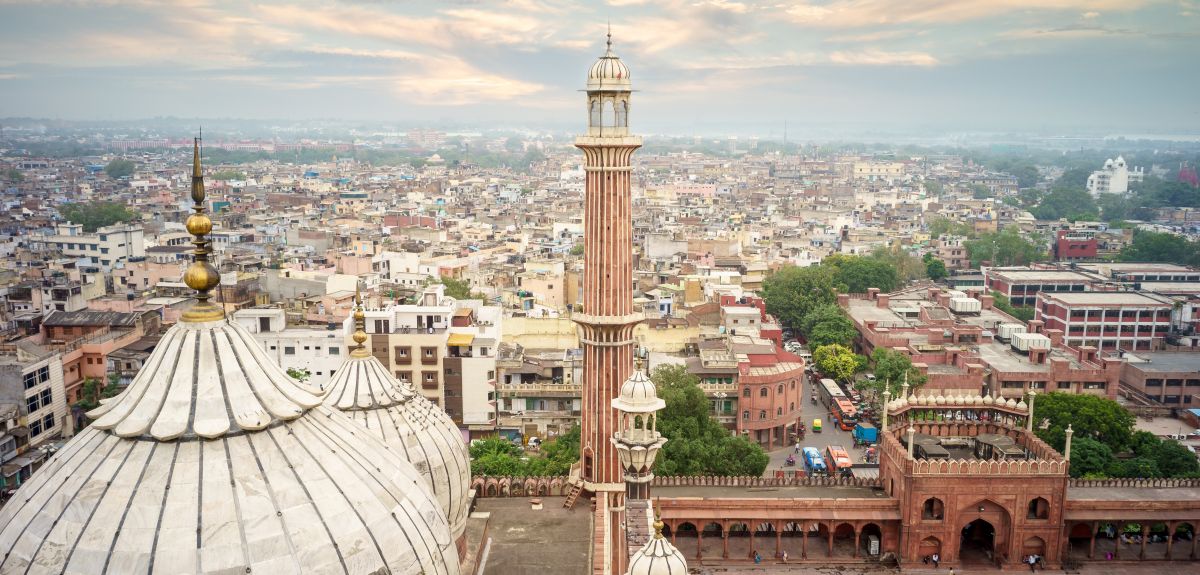
Image credit: Shutterstock
Artistic Licence: Islamic family law in modern India
Professor Justin Jones of Oxford’s Faculty of Theology and Religion, who has been working on Islam in India for the last 15 years through a variety of different projects, is now working on Sharia (Islamic law), and how it is practised among Muslim communities in modern India.
India, by its constitution, is considered to be a secular state. However, the Indian government has always promised to protect religious freedoms by allowing minorities to live by their own religious laws in their personal and family lives. This means that Muslims in India are still subject to a version of Islamic law (known as Muslim personal law) in family matters – issues such as marriage and divorce, for instance.
In much of the Islamic world, these laws have been codified. But in India, it is very different. There is no code of Muslim family law, and much of it is handled informally, at community level. This means that community religious leaders – often known as the ulama – have a lot of power over individual lives. They make decisions on issues like marriages and divorces that have huge ramifications for individual men and women.
Professor Jones explores the complicated implications of India’s status as a secular state. His work shows that, since India’s constitutional system delegates much legal power to communities themselves, it indirectly makes ‘religious’ leaders more, not less, powerful within their communities. They have exercised authority as legal professionals, issuing legal instructions (fatwas) and running non-government legal forums, like Sharia councils, that handle community cases.
Professor Jones says his work is an attempt to explore what he calls the ‘lived law’ in India. Usually, legal historians have tended to look at the sources left behind by formal legal systems: things like court records, legal statutes or legal digests. This is also true for much legal history of India. But this project considers the exact opposite – how little these formal ideas matter in a society like this. It argues there is a huge gap between these state-driven forms of law, and how law is actually handled and experienced locally. There is a whole world in India where these government involvements in law are entirely absent: community leaders come to their own decisions themselves.
Doing this research means engaging in this informal world. Professor Jones has been working with these communities, in small villages and peripheral urban neighbourhoods across India. He has talked to the scholars actually making these informal decisions, observed ‘Sharia court’ sessions, and been given access to the records of some of these institutions.
Another set of questions raised by this research has been the impact upon Muslim women, who are often most affected by how laws of marriage, divorce, inheritance and child custody are handled. Professor Jones has been working with different Muslim feminist groups within India to discuss their experiences and opinions of this uncodified system. In August 2017, he teamed up with Bharatiya Muslim Mahila Andolan (BMMA), India’s foremost Islamic feminist group, to run a workshop with young activists in Delhi. He and a number of activists and NGO leaders based around India ran sessions discussing both Sharia laws and Indian laws to help them find ways to empower the women they work with. This gave these activists the opportunity to share their knowledge and experiences with academics and writers, and consider different strategies for improving women’s rights.
The BMMA argue that Islamic law and the Islamic constitution both uphold women’s rights, and offer gender justice and protection. They argue that religious scholars have sustained a flawed, patriarchal interpretation of Islam. They are making arguments from Islamic principles, using religion as a basis for building a new language of women’s rights. They have even set up their own Sharia councils, led by women, to offer their own more gender-just interpretations, and they are now arguing for an overhaul of Muslim family laws in India.
In the coming years, Professor Jones hopes to look further into Islamic feminism, and the efforts of these groups to build an equal and fair family law, both within India and around the world.